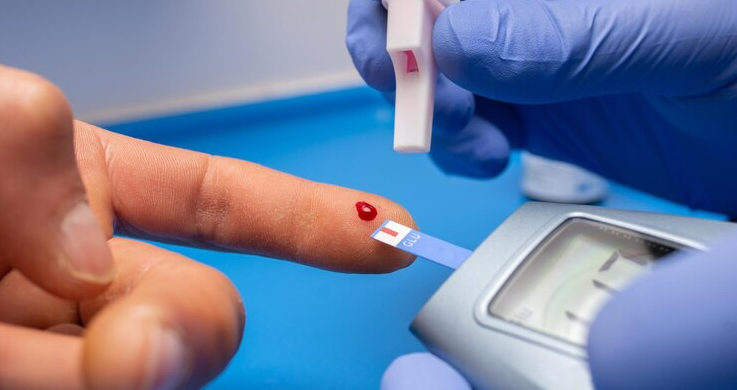Diabetes is frequent at all ages. Diabetes has many types. Most people have type 2. You can live a healthy life and avoid difficulties with a combination of treatments.
Diabetes, what?
High blood sugar (glucose) causes diabetes. It occurs when your pancreas doesn't produce enough insulin or your body doesn't respond to it appropriately. Diabetes affects all ages. All forms of diabetes can be managed with drugs and lifestyle adjustments, even chronic ones.
Carbohydrates in food and drinks provide glucose (sugar). Your body relies on it for energy. Your blood supplies glucose to all your cells for energy.
A “key” helps glucose in your bloodstream reach its goal. Insulin is the key. High blood sugar (hyperglycemia) results from your pancreas not producing enough insulin or your body not using it effectively.
High blood glucose can cause heart disease, neurological damage, and vision problems over time.
Diabetes mellitus is its technical term. Another disorder called diabetic insipidus is different. Both produce excessive thirst and urine, hence the name “diabetes”. Diabetes mellitus is more common than diabetes insipidus.
What diabetes kinds exist?
Several diabetes kinds exist. Some frequent forms are:
- Type 2 diabetes: Your body doesn't create enough insulin or your cells don't respond well to it. This is the most common diabetes. It mostly affects adults, but children can have it.
- Prediabetes precedes Type 2 diabetes. Your blood glucose levels are elevated but not high enough for Type 2 diabetes.
- Type 1 diabetes: Your immune system assaults and destroys pancreatic insulin-producing cells for unexplained reasons. Up to 10% of diabetics are Type 1. It can occur at any age, but children and young people are most often diagnosed.
- Some pregnant women acquire gestational diabetes. Pregnancy-induced diabetes normally resolves. However, gestational diabetes increases your chance of Type 2 diabetes later in life.
How prevalent is diabetes?
Diabetes is prevalent. Diabetes affects 11% of Americans, or 37.3 million. Most diabetes cases are type 2, accounting for 90% to 95%.
Diabetes affects 537 million persons worldwide. These numbers are expected to climb to 643 million by 2030 and 783 million by 2045.
Symptoms, causes
What are diabetic symptoms?
Diabetes symptoms:
- Hyperhydrosis and dry mouth.
- Frequent urination.
- Fatigue.
- Vision blurred.
- Unknown weight loss.
- Hands or feet numb or tingling.
- Wounds that take longer to heal.
- Common skin/vaginal yeast infections.
Talk to your doctor if you or your kid experiences these symptoms.
What causes diabetes?
Too much glucose in the bloodstream causes diabetes, regardless of type. Different types of diabetes cause different high blood glucose levels.
Among diabetes causes:
- Insulin resistance causes most type 2 diabetes. Resistance occurs when muscle, fat, and liver cells don't respond to insulin. Many factors contribute to insulin resistance, including obesity, lack of exercise, food, hormonal imbalances, heredity, and drugs.
- Immune disease: Your immune system assaults pancreatic insulin-producing cells, causing type 1 diabetes and LADA.
- Hormonal imbalances: Placenta hormones cause insulin resistance throughout pregnancy. If your pancreas can't create enough insulin to overcome insulin resistance, you may develop gestational diabetes. Hormone disorders including acromegaly and Cushing syndrome can cause Type 2 diabetes.
- Pancreatic damage: A condition, surgery, or injury can impair pancreatic insulin production, causing Type 3c diabetes.
- Mutations: MODY and neonatal diabetes can result from genetic mutations.
- HIV/AIDS drugs and corticosteroids can cause Type 2 diabetes over time.

